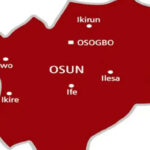
This includes equipping and provision of accommodation to the top management staff of the Fund.
According to a statement signed on Friday by the President’s Senior Special Adviser on Media and Publicity, Garba Shehu, Buhari spoke at the second Heads of State and Government of SRCC during the 36th African Union Summit.
The statement is titled ,‘Nigeria ready to host secretariat of Sahel Climate Fund – President Buhari’.
The Sahel Climate Fund is the financial body of the Sahel Region Climate Commission.
The body is one of the three climate Commissions for Africa created in Marrakech, Morocco in 2016 at the Summit of African Heads of State and Government, organised at the initiative of King of Morocco, on the sidelines of the 22nd Conference of the Parties, COP22, to the UN Framework Convention on Climate Change.
The Sahel geo-climatic region comprises 17 countries stretching from the Atlantic to the Red Sea, including Nigeria, Benin, Burkina Faso, Cameroon, Cape Verde, Côte d’Ivoire, The Gambia, Guinea Conakry, Djibouti, Ethiopia, Eritrea, Mali, Mauritania, Niger, Senegal, Sudan and Chad.
According to Buhari, Nigeria, an active member of the Commission, will support the operationalisation of the secretariat toward effective implementation of climate change activities in the region.
“He expressed concern that the availability and access to funds for implementation of climate change activities, especially adaptation, remain major problems for the African region.
“He, therefore, described the Sahel Climate Fund as an additional financial resource which is adequate and predictable for implementation of the requirements of the Climate Change Convention and the Paris Agreement,” the statement read in part.
Buhari said the Fund would, among others, serve as a gateway to climate finance and investment strategy, finance the implementation of National Determined Contributions of member states and ensure effective participation of the Sahel Region in the global effort to curb greenhouse gas emissions.
The Fund is also expected to mobilise required resources from member states, bilateral and multilateral partners, and private financial institutions, he noted.
Buhari argued that the Sahel Climate Fund would serve as a gateway to climate finance and investment strategy that considers innovative and practical ways to overcome multiple risk impediments and sustainable financial support to Sahelian Countries.
This is because the barriers to accelerated climate finance inflows and Africa’s climate related sectors are perceived to be high risk investment destinations due to multi-layered operational risks.
‘‘The Sahel Climate Fund will mobilize the necessary resources from member states, bilateral and multilateral partners, and private financial institutions to foster cooperation and coordinated actions among Sahel Region Climate Commission member countries to address climate change,’’ he added.
He called for urgent and extensive action as well as broad international participation required to tackle climate change in Africa.
Buhari warned that climate change is an increasing threat to Africa, with Nigeria no least affected.
The President noted that its adverse impact is the underlying cause of many human population stressors and conflicts with the potential of causing regional instability.
‘‘Nigeria is grappling with a wide-range of adverse impacts of climate change.
‘‘Like other countries in Africa within the Sahel Region, the country has over the past few decades been plagued by a lot of climatic irregularities with serious concerns on the society, due to its spontaneous nature and likely overwhelming effects on national development with implications for food security due to changes in rainfall pattern, desertification and obstruction to the natural ecosystems,’’ he said.
In his text circulated at the Summit, King Mohammed VI of Morocco warned that by 2030 no fewer than 118 million people in Africa will be directly threatened by extreme weather events.
In the G5 Sahel-sub-region, he said, it is estimated that poverty could affect an additional 13.5 million people by 2050.
‘‘Despite this alarming situation, up to 2020 our continent has received only 12 percent of global climate financing,’’ he said.
Therefore, the monarch declared that the climate battle in the Sahel region, which has been most severely impacted by climate change, can only be won through the optimal mobilisation of the region’s own public funds.
He then pledged support for the Commission, saying that his country has honoured its commitments made at the maiden conference by providing the Commission with ‘‘capacity building, technical assistance and financial support for the preparation of feasibility studies to finalise its Climate Investment Plan.’’





